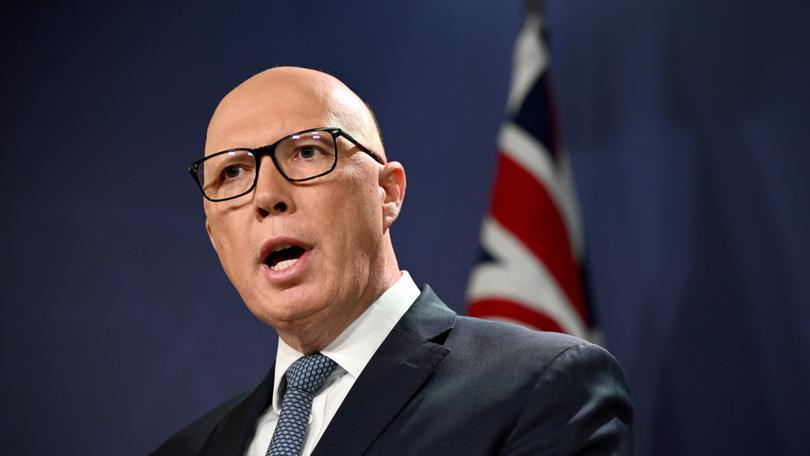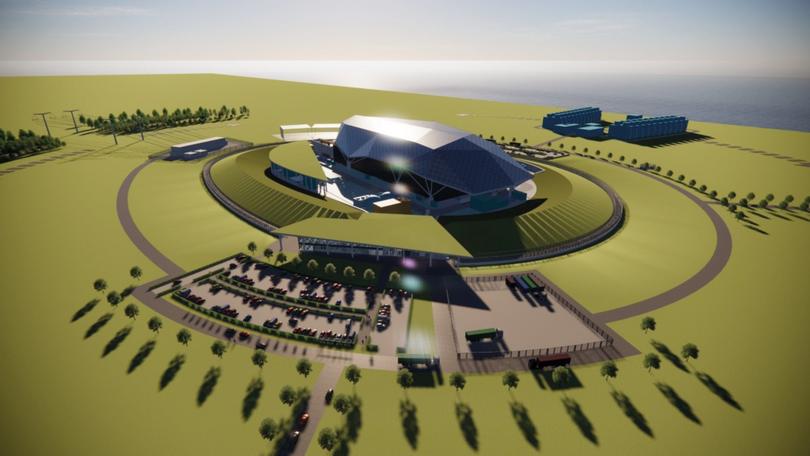EDITORIAL: Nuclear question tests Australia’s capacity for mature debate on future of energy
EDITORIAL: We say it’s a discussion worth having. If nuclear power really can deliver a safe, cost-effective and reliable solution to our energy needs, there’s no reason not to pursue it.

Peter Dutton’s plan to build seven nuclear power plants around Australia by 2050 is, depending on which Labor politician you ask, a “fantasy”, a “scam”, “economic madness” or the “dumbest policy ever put forward by a major party”.
Suffice to say they don’t love it.
Mr Dutton says he wants to transition existing, ageing coal-fired power stations at Liddell and Mt Piper in NSW, Loy Yang in Victoria, Callide and Tarong in Queensland to nuclear power plants, using existing transmission line infrastructure.
Sign up to The Nightly's newsletters.
Get the first look at the digital newspaper, curated daily stories and breaking headlines delivered to your inbox.
By continuing you agree to our Terms and Privacy Policy.Politically, it’s a spectacularly audacious move that will set up the most extreme contrast between our two major political parties in decades.
You can’t accuse Mr Dutton of being a leader without vision.
Convincing Australians of the wisdom of that vision will be a tough job, however. There remains a considerable amount of anxiety in the community around nuclear technology, particularly among those who remember the incidents including the 1986 Chernobyl disaster and the Three Mile Island reactor meltdown in the US. The 2011 Fukushima disaster brought the issue to the minds of a new generation.
However as these incidents recede in our collective memory and people become more attuned to the need for clean and reliable energy, opposition to nuclear technology has waned. A poll released by the Lowy Institute earlier this month of 2000 voters showed 61 per cent said they supported Australia including nuclear generation in its energy mix.
So there’s a willingness on the part of the electorate to be convinced about the merits of nuclear. Whether that agnosticism will survive the inevitable scare campaign to come from the technology’s opponents remains to be seen.
There’s a lot else working against Mr Dutton. For one, the national moratorium on nuclear energy was put in place by John Howard in 1998.
Then there are bans in WA, Victoria, Queensland and NSW, which the premiers of those states say they won’t be lifting.
Segments of industry that have gone all in on renewables won’t be thrilled either.
The biggest problem though will be cost.

Mr Dutton insists his nuclear plan will deliver energy at a “fraction of the cost” of the Government’s existing renewables path. However, the policy is as yet uncosted, and Mr Dutton hasn’t committed to releasing those details before the election.
The CSIRO has estimated it would cost at least $8.5 billion — and potentially double that — to build a single plant.
It’s important to state that both Labor and the Liberals say they remain committed to the 2050 net zero target. What they differ on is the best technology to get us there.
We say it’s a discussion worth having. If nuclear power really can deliver a safe, cost-effective and reliable solution to our energy needs, there’s no reason not to pursue it.
But it needs to be a mature and reasonable debate based on facts, not ideology and emotion.
If the vehement opposition with which Mr Dutton’s plan was greeted with by Labor today is anything to go by, that may be a big ask.
